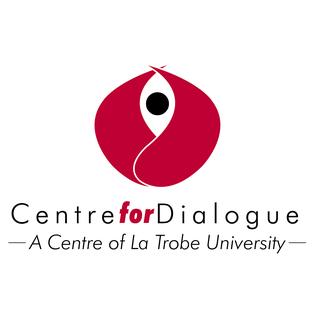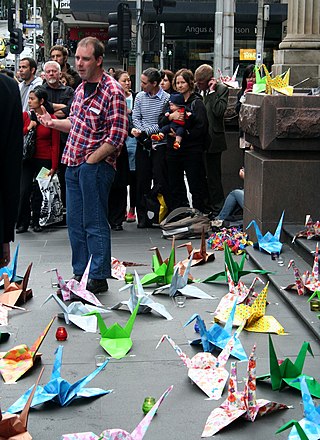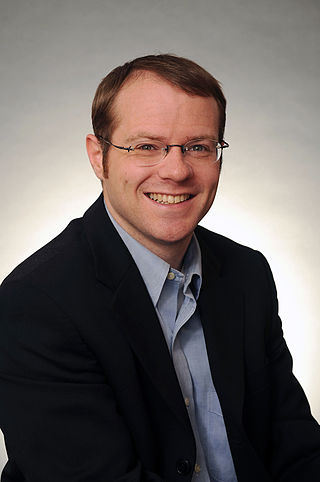Jim Falk (born 26 October 1946) is a physicist and academic researcher on science and technology studies.
Jim Falk (born 26 October 1946) is a physicist and academic researcher on science and technology studies.
Falk was born in Oxford, England. His father was the philosopher Werner D. Falk (latterly professor at the University of North Carolina [1] ), and his mother an Australian, Dr. Barbara Cohen. [2] [ non-primary source needed ] Werner Falk had fled Germany prior to World War II and was studying and lecturing at the University of Oxford. [3] [ non-primary source needed ] The family moved to Australia when Jim Falk was young, when his father worked at the University of Melbourne. Falk attended Scotch College from 1952 to 1964, graduated with first class honours in physics at Monash University in 1968,[ citation needed ] and received his PhD from Monash in theoretical quantum physics in 1974.[ citation needed ] His late partner for 47 years was Emeritus Professor Sue Rowley (1948-2016), with whom he had two children. [4] Jim Falk lives in Melbourne.[ citation needed ]
In December 2010 he retired, but remained an honorary professorial fellow in the Melbourne Sustainable Society Institute, at The University of Melbourne. He was the founding director of Climate Change research for the Association of Pacific Rim Universities World Institute, and holds appointments also of visiting professor to the Institute of Advanced Studies of Sustainability at the United Nations University (in Yokohama, Japan), and emeritus professor at the University of Wollongong.[ citation needed ]
For over 35 years Falk has studied science and technology in their social contexts. [5] He has worked towards advancing understanding of the political, economic and cultural factors which constrain or facilitate the exercise of social control over technological change, latterly in relation to climate change and information technology but particularly nuclear technology, arms races and militarisation. Most recently[ when? ] he has focused on the broad issues of human governance (including what needs to be done to respond to challenges faced by humanity from climate change, to energy policy, and to issues associated with information flows and military threats).[ citation needed ]
One of Falk's books, co-authored with Joseph Camilleri, was launched by UNDP head, the Hon Helen Clark, in Sydney, Australia in February 2010. The book "Worlds in Transition: Evolving Governance Across a Stressed Planet", Edward Elgar, UK, is a synoptic overview of the way in which humans have come to collectively seek to shape their futures, and the challenges posed to that in a time of rapid transition. [6] [7]
Falk has made a number of media appearances in relation to the nuclear accidents at Fukushima and the implications for future energy policy. Jim Falk has recently[ when? ] authored a short e-book "Things that Count: the rise and fall of calculators" on the social history of calculation technology. It can be downloaded from a website he maintains on the subject.[ tone ] [8] His current[ when? ] scholarly work is on the proposals associated with geoengineering, which were the subject of a seminar he presented at the United Nations University Institute of Advanced Studies in Yokohama, Japan, in October 2013. [9]

Carlota Perez is a British-Venezuelan scholar specialized in technology and socio-economic development. She researches the concept of Techno-Economic Paradigm Shifts and the theory of great surges, a further development of Schumpeter's work on Kondratieff waves. In 2012 she was awarded the Silver Kondratieff Medal by the International N. D. Kondratieff Foundation and in 2021 she was awarded an Honorary Doctorate by Utrecht University.
In energy economics and ecological energetics, energy return on investment (EROI), also sometimes called energy returned on energy invested (ERoEI), is the ratio of the amount of usable energy delivered from a particular energy resource to the amount of exergy used to obtain that energy resource.
Stephen Paul Martin is an Australian former politician, senior academic and rugby league referee. He served as an Australian Labor Party (ALP) member of the Australian House of Representatives for the seat of Macarthur, south west of Sydney, from 1984 to 1993; and, following redistribution, represented Cunningham from 1993 until his resignation in 2002. Martin was the Chief Executive of the Committee for Economic Development of Australia (CEDA) from January 2011 until his retirement in April 2017.
Graeme Milbourne Clark is an Australian Professor of Otolaryngology at the University of Melbourne. Worked in ENT surgery, electronics and speech science contributed towards the development of the multiple-channel cochlear implant. His invention was later marketed by Cochlear Limited.
Henry Isaac Ergas is an economist who has worked at the OECD, Australian Trade Practices Commission as well as at a number of economic consulting firms. He chaired the Australian Intellectual Property and Competition Review Committee set up by the Australian Federal Government in 1999 to review Australia's intellectual property laws as they relate to competition policy.
Helen Verran is an Australian historian and empirical philosopher of science, primarily working in the Social Studies of Science and Technology (STS), and currently Adjunct Professor at Charles Darwin University.

The Centre for Dialogue is an interdisciplinary research institution at La Trobe University. Professor Joseph Camilleri was the director of the centre from 2006 until 2013. The current director is Professor Alberto Gomes. The research centre specialises in the philosophy, method and practice of dialogue between communities, cultures, religions and civilisations. The key aims of the centre include:
Nicholas Knight was, from 1981 to 2008, Professor of Asian Studies at Griffith University, Brisbane, Australia. Knight obtained a Bachelor of Arts (Honours) from the University of Queensland (1974), and a Master of Science (1977) and Doctor of Philosophy (1983), both from the School of Oriental and African Studies, at the University of London.

Amitabh Mattoo is one of India's leading thinkers and writers on Modern and Contemporary History, Political science, International relations. He was awarded Padma Shri by the Government of India in 2009. He is Dean of the School of International Studies, Chair & professor at Jawaharlal Nehru University and honorary professor of international relations at the University of Melbourne. Until 19 June 2018, he served as Advisor to the Chief Minister of Jammu and Kashmir, with the status of a Cabinet Minister. Mattoo is a member of the Academic Advisory Board of the German Institute for Global and Area Studies and was recently elected unanimously as its Deputy Chair. He was the founding CEO of the Australia India Institute at the University of Melbourne and served as chairman of the governing board of Miranda House, University of Delhi, the highest-ranked women's college in India, and served as Chair of Kirori Mal College earlier He has also been a member of the Lancet Commission on Adolescent Health and Wellbeing. In 2002, he was the youngest person to be appointed as vice chancellor of a public university in independent India. Mattoo's advice on policy matters has been sought across political parties and across governments, including by Prime Ministers Atal Behari Vajpayee and Dr Manmohan Singh. Following the abrogation of Article 370 of the Constitution of India, he has offered a political roadmap for securing the future of Jammu and Kashmir. He has been a persistent advocate of multiculturalism and of reconciliation between Kashmiri Pandits and Kashmiri Muslims.

Jim Green is an anti-nuclear campaigner with Friends of the Earth Australia. Green is a regular media commentator on nuclear issues. He has an honours degree in public health from the University of Wollongong and was awarded a PhD in science and technology studies for his analysis of the Lucas Heights research reactor debates.

Nuclear weapons testing, uranium mining and export, and nuclear power have often been the subject of public debate in Australia, and the anti-nuclear movement in Australia has a long history. Its origins date back to the 1972–1973 debate over French nuclear testing in the Pacific and the 1976–1977 debate about uranium mining in Australia.

Benjamin K. Sovacool is an American academic who is director of the Institute for Global Sustainability at Boston University as well as Professor of Earth and Environment at Boston University. He was formerly Director of the Danish Center for Energy Technology at the Department of Business Development and Technology and a professor of social sciences at Aarhus University. He is also professor of energy policy at the University of Sussex, where he formerly directed the Center on Innovation and Energy Demand and the Sussex Energy Group. He has written on energy policy, environmental issues, and science and technology policy. Sovacool is also the editor-in-chief of Energy Research & Social Science.
John Braithwaite is a Distinguished Professor at the Australian National University (ANU). Braithwaite is the recipient of a number of international awards and prizes for his work, including an honorary doctorate at KU Leuven (2008), the University of Louisville Grawemeyer Award with Peter Drahos for Ideas Improving World Order (2004), and the Prix Emile Durkheim, International Society of Criminology, for lifetime contributions to criminology (2005).
Joseph Camilleri is an Australian citizen of Maltese descent. He is a social scientist and philosopher. In philosophy he mostly specialised and interested in international relations.

David Stephen Gordon Goodman is Director of the China Studies Centre, University of Sydney, where he is also Emeritus Professor of Chinese Politics in the Department of Government and International Relations. He is also Emeritus Professor in the Department of China Studies at Xi'an Jiaotong-Liverpool University in Suzhou, China; and Emeritus Professor in the Australia-China Relations Institute at the University of Technology, Sydney. Prof Goodman is a Fellow of the Academy of Social Sciences in Australia.

Elgar Fleisch is an Austrian/Swiss Professor of Information and Technology Management at ETH Zurich and the University of St. Gallen. Besides his academic career, Elgar Fleisch is also locally known as a singer, songwriter and musician. He is part of the duo Fleisch & Fleisch and has recorded nine albums together with his brother Gerald.
Ken Baldwin is professor of physics at the Australian National University (ANU). He is the deputy director of the Research School of Physics and the director of the [http://energy.anu.edu.au/ ANU Energy Change Institute].

Margaret Mary Sheil is an Australian academic and the Vice Chancellor of Queensland University of Technology.

Lesley Head is an Australian geographer specialising in human-environment relations. She is active in geographical debates about the relationship between humans and nature, using concepts and analytical methods from physical geography, archaeology and cultural geography. She retired from the University of Melbourne in 2021.

Sergiy A. Vilkomir was a Ukrainian-born computer scientist.